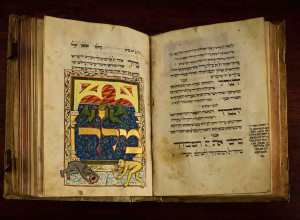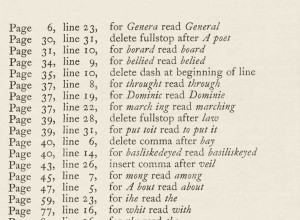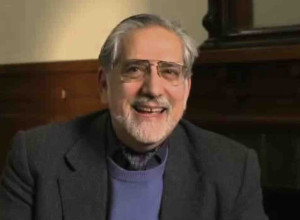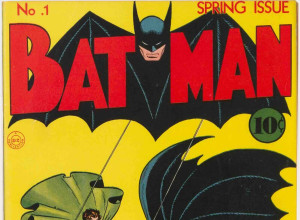Casanova and Other Librarians
The news this week that the Bibliotheque Nationale in Paris had acquired the manuscript memoirs of the great eighteenth-century Venetian lothario known to one and all as Casanova--Tiger Woods can only dream of walking in this guy's remarkable footsteps--brought to mind a very nice book published a decade ago by Louisiana State University Press, Casanova Was a Book Lover: And Other Naked Truths and Provocative Curiosities about the Writing, Selling, and Reading of Books. This smart collection of bibliophilic essays was written by John Maxwell Hamilton, an occasional commentator on NPR and dean of LSU's School of Mass Communications; you have to love a book that is dedicated to "all reviewers," and includes the explanation that "only ungrateful asses would pan a book after having it dedicated to them."
Hamilton's title piece took irreverent note of the fact that Giacomo Girolamo Casanova de Seingalt (1725-1798) spent the final years of his eventful life as a librarian in the household of Count Joseph Karl von Waldstein of Bohemia, and it was in that dreary castle that he took pen to paper and wrote Histoire de ma vie, the racy memoirs for which he became famous, and which an anonymous benefactor acquired on behalf of the French National Library (BNF). Though the actual purchase price was not disclosed, the figure was widely reported to be five million euros, about $9 million, which, if correct, would qualify it as the costliest manuscript transaction on record. The papers--comprising 3,700 pages of yellowing sheets--were transfered Monday to the BNF in thirteen boxes, and represent the complete, uncensored account of Casanova's amorous adventures. The material had been owned since 1821 by the Brauckhuas publishing company in Germany, and was once thought to have been destroyed in World War II; it was later found safely stored in a bank vault.
For those truly interested in the role of librarians, especially those coping with so many seismic changes brought on by the twenty-first century, I heartily recommend a new release from HarperCollins, This Book Is Overdue: How Librarians and Cybrarians Can Save Us All, $24.99, by Marilyn Johnson. A staff writer for Life magazine. Johnson says that she first became interested in the subject while doing research for her first book, a well received examination of obituaries wryly titled The Dead Beat: Lost Souls, Lucky Stiffs, and the Perverse Pleasures of Obituaries. "With the exception of a few showy eccentrics, like the former solder in Hitler's army who had a sex change and took up professional whistling, the most engaging obit subjects were librarians."
Before long she was fully involved in the world of these wonderful professionals whose sole goal in life, it seems, is to provide knowledge and information to others. Johnson's coinage of the word "cybarian" takes note of the changing nature of the business, and of the many ways the people she proceeded to spend so much time with have adapted to the new technologies. She describes the modern librarian as a person whose job is to "create order out of the confusion of the past, even as she enables us to blast into the future."
The result is a most enthusiastic book that is great fun to read (and one which, I feel bound to disclose, makes generous mention of several books that I have written.) Its greatest contribution, I think, is that it pays tribute to an essential public service that so many government officials blithely feel can be cut at will during budgetary crises, reductions made especially easy for them to impose since these temples of wisdom have no well-heeled lobbyists throwing corporate money around to champion their cause. The epigraph to one of Johnson's chapters says it best: "In tough times, a librarian is a terrible thing to waste."
Hamilton's title piece took irreverent note of the fact that Giacomo Girolamo Casanova de Seingalt (1725-1798) spent the final years of his eventful life as a librarian in the household of Count Joseph Karl von Waldstein of Bohemia, and it was in that dreary castle that he took pen to paper and wrote Histoire de ma vie, the racy memoirs for which he became famous, and which an anonymous benefactor acquired on behalf of the French National Library (BNF). Though the actual purchase price was not disclosed, the figure was widely reported to be five million euros, about $9 million, which, if correct, would qualify it as the costliest manuscript transaction on record. The papers--comprising 3,700 pages of yellowing sheets--were transfered Monday to the BNF in thirteen boxes, and represent the complete, uncensored account of Casanova's amorous adventures. The material had been owned since 1821 by the Brauckhuas publishing company in Germany, and was once thought to have been destroyed in World War II; it was later found safely stored in a bank vault.
For those truly interested in the role of librarians, especially those coping with so many seismic changes brought on by the twenty-first century, I heartily recommend a new release from HarperCollins, This Book Is Overdue: How Librarians and Cybrarians Can Save Us All, $24.99, by Marilyn Johnson. A staff writer for Life magazine. Johnson says that she first became interested in the subject while doing research for her first book, a well received examination of obituaries wryly titled The Dead Beat: Lost Souls, Lucky Stiffs, and the Perverse Pleasures of Obituaries. "With the exception of a few showy eccentrics, like the former solder in Hitler's army who had a sex change and took up professional whistling, the most engaging obit subjects were librarians."
Before long she was fully involved in the world of these wonderful professionals whose sole goal in life, it seems, is to provide knowledge and information to others. Johnson's coinage of the word "cybarian" takes note of the changing nature of the business, and of the many ways the people she proceeded to spend so much time with have adapted to the new technologies. She describes the modern librarian as a person whose job is to "create order out of the confusion of the past, even as she enables us to blast into the future."
The result is a most enthusiastic book that is great fun to read (and one which, I feel bound to disclose, makes generous mention of several books that I have written.) Its greatest contribution, I think, is that it pays tribute to an essential public service that so many government officials blithely feel can be cut at will during budgetary crises, reductions made especially easy for them to impose since these temples of wisdom have no well-heeled lobbyists throwing corporate money around to champion their cause. The epigraph to one of Johnson's chapters says it best: "In tough times, a librarian is a terrible thing to waste."















